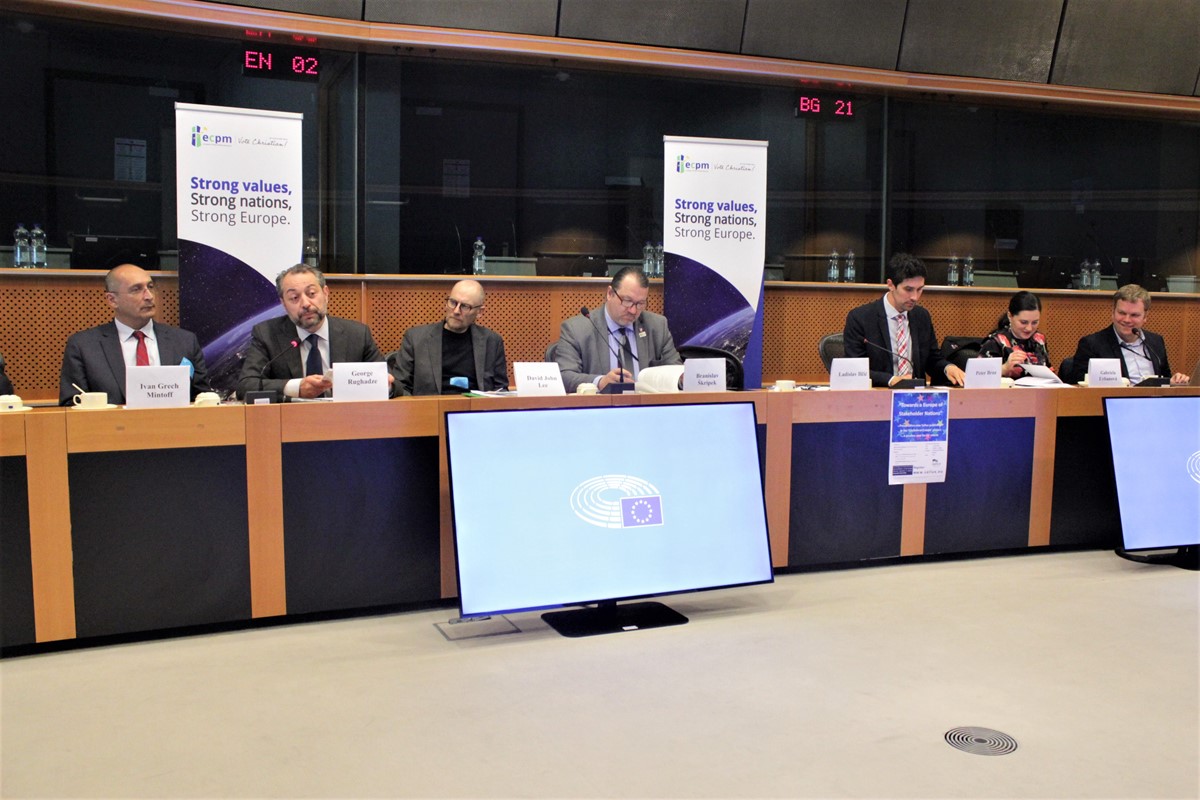
Tuesday, April 16, 2019
Towards A Europe of Stakeholder Nations
Towards a Europe of Stakeholder Nations. A Positive Case for EU Reform
European Parliament, Brussels- April 11, 2019. The European Christian Political Movement in collaboration with Sallux, hosted a panel discussion during which a case for reforming the EU was made. Rather than heading towards an EU superstate, it was argued by the speakers on the panel that returning more autonomy and control to the member states would be a much more sustainable and equitable way of governing.
The Salux foundation presented its second publication in the ‘Confederal Europe project’ that emphasizes the relations between the peoples and nations of Europe and is pointing a way forward based on the Judeo-Christian roots of the EU in the spirit of the EU founding fathers.
The event was opened by host, ECPM President and current MEP Branislav Škripek (Slovakia) who expressed hope that more candidates who share Christian values will enter the EP in the next term because “when good people with good intentions come here good things will happen and we can effect change in the European institutions.”
Authors David Lee and Paul Mills offered a confederal model of organizing the European Union, consistent with its shared Christian heritage and the vision of the Treaty of Rome and supporting the principles of subsidiarity and coordinated policies. This model relies heavily on institutional relationships that exist between the EU and member states, between the nations in the Eurozone and those created among corporations, banks and financial markets.
The Confederal Europe project proposes gradual reform of key EU institutions, focusing on maintaining Europe’s unique heritage and place in the world, a decentralization of power and a commitment at all levels and by all institutions to enable stakeholders to work collaboratively towards mutually agreed goals.
Mr. Škripek, as well as EP candidates Mr. Ladislav Ilčić and Mr. Ivan Mintoff, further elaborated on the idea of a union with decentralized power centers where relationships are based on cooperation rather than control. Ladislav Ilčić pointed out that “people feel they can’t influence development in Brussels right now. If they felt they had a say, they would be more motivated to be active. That is why the vision for a confederal Europe is important: it brings the EU closer to the people”. Peter Broz, EP candidate from Slovakia, emphasized the importance of relational capital at individual level and challenged us to not see the citizen merely as a number, but to value and appreciate everyone.
The proposed reform is not Eurosceptic but rather a rearrangement of responsibilities within the EU that will strengthen European cooperation and attract more support from the people the union was created to serve, not to rule.